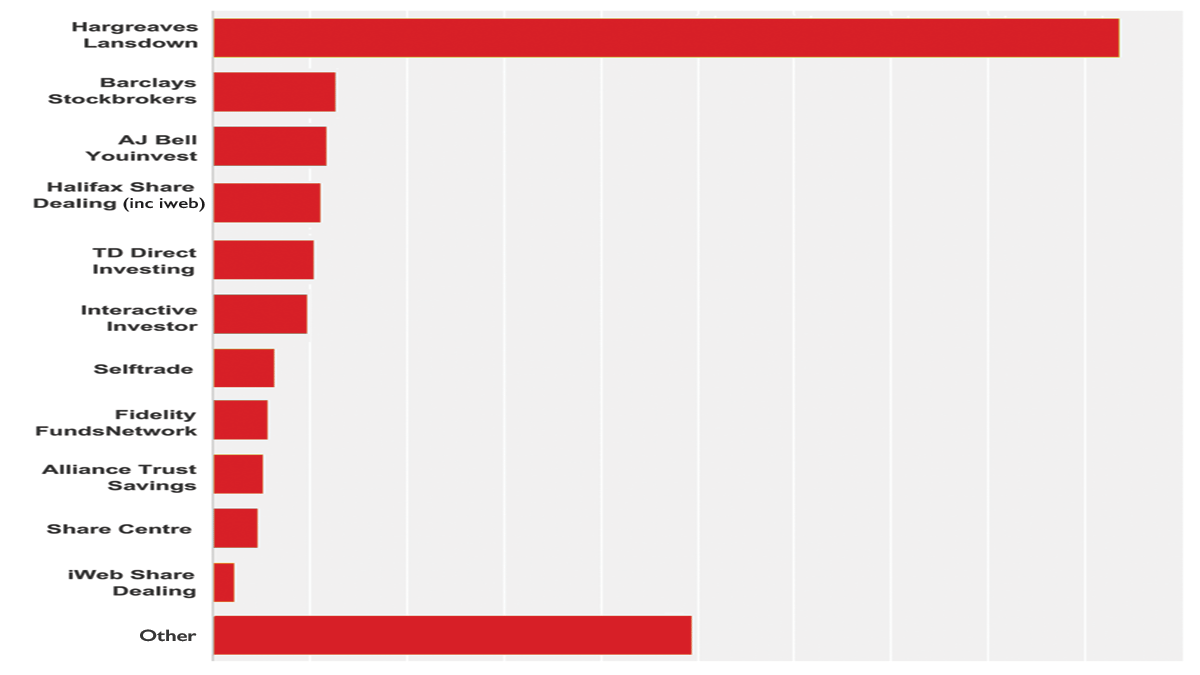Interactive Investor launches £5.99 a month Sipp - is it any good?
The flat-fee platform says it is leading a pension pricing shake-up. But how does it compare to other pensions on the market? We have all the details.


Get the latest financial news, insights and expert analysis from our award-winning MoneyWeek team, to help you understand what really matters when it comes to your finances.
You are now subscribed
Your newsletter sign-up was successful
Want to add more newsletters?

Twice daily
MoneyWeek
Get the latest financial news, insights and expert analysis from our award-winning MoneyWeek team, to help you understand what really matters when it comes to your finances.

Four times a week
Look After My Bills
Sign up to our free money-saving newsletter, filled with the latest news and expert advice to help you find the best tips and deals for managing your bills. Start saving today!
Interactive Investor has cut the cost of its self-invested personal pension (Sipp) for small balances, lowering the monthly fee by £7.
It means those with a pension pot worth less than £50,000 will now pay £5.99 a month for their Sipp. They previously paid £12.99.
The investment platform says it is leading a pension pricing shake-up in the UK. The move will ignite the debate between flat fees and percentage fees and the cheapest way to pay for stocks and shares ISAs, investment accounts and Sipps.
MoneyWeek
Subscribe to MoneyWeek today and get your first six magazine issues absolutely FREE

Sign up to Money Morning
Don't miss the latest investment and personal finances news, market analysis, plus money-saving tips with our free twice-daily newsletter
Don't miss the latest investment and personal finances news, market analysis, plus money-saving tips with our free twice-daily newsletter
We look at how the Sipp compares to other products on the market - and depending on your balance, which pension provider is most cost-effective for you.
How Interactive Investor’s new pricing model works
“Pension Essentials” is a new entry-level subscription plan for pots under £50,000. Interactive Investor claims it is the best-value pension available on pots worth more than £15,000.
Customers can hold funds (including exchange traded funds), investment trusts and UK and US shares in the Sipp. There is free monthly investing, while one-off trades cost £3.99.
Once savers exceed the £50,000 threshold, they are moved onto the “Pension Builder” price plan, which is £12.99 per month. That’s regardless of whether they have £60,000 or £600,000 in their Sipp - the fixed fee stays the same.
“Our Pension Essentials subscription is designed to help people who are nearer the start of their pension journey,” said Alice Guy, head of pensions and savings at Interactive Investor.
The company says it will alert existing customers with pensions below £50,000 so they can transfer to the new service and get better value for money.
Which Sipp is cheapest for you?
For very small pensions, Vanguard is the cheapest Sipp provider. It charges 0.15% a year. This means someone with £5,000 in their pension would pay £7.50 for their annual management fee.
A saver with £10,000 would pay £15, while someone with a £15,000 Sipp would pay £22.50.
AJ Bell is another low-cost option, charging 0.25% a year. This means a £12.50 annual fee for a customer with £5,000 in their Sipp.
In contrast, Interactive Investor’s Pension Essentials model is more expensive for these very small pots. Its annual fee is £71.88 (£5.99 a month x 12), on all balances up to £50,000.
Let’s look at a Sipp worth £20,000. Vanguard’s 0.15% fee increases to £30 a year. AJ Bell’s rises to £50. So, Interactive Investor still looks more expensive.
However, if you factor in investment trades throughout the year, a different picture emerges.
The consultancy The Lang Cat has crunched the figures, assuming portfolios of 50% funds and 50% equities with two fund trades and two equity trades per year, as well as 12 regular equity trades and 12 regular fund trades. This discounts Vanguard, as it only offers funds to invest in - it’s not possible to buy equities in a Vanguard Sipp.
For a £20,000 pot, Interactive Investor is the cheapest, at £87.84 a year. This compares to £103 (Fidelity), £108.90 (AJ Bell) and £113.90 (Hargreaves Lansdown).
For all pots between this level and £50,000, Interactive Investor continues to be the best-value - and in fact, the price gap widens as the percentage-based platforms become more expensive. For example, a £40,000 Sipp continues to cost £87.84 with Interactive Investor, but the charges levied by the three other platforms have all grown. Hargreaves Lansdown now charges £203.90 a year.
At £50,000, Hargreaves’s annual fee has ballooned to £248.90 (the most expensive platform reviewed by The Lang Cat), while a saver with a £50,000 Interactive Investor Sipp would pay just £87.84 a year.
The analysis shows that for bigger pensions, Interactive Investor’s Pension Builder plan, at £12.99 a month (or £155.88), also proves to be competitive. Savers with £100,000 in their Sipp would pay £171.84 (this includes the trades above, as included in The Lang Cat’s figures), while those with a £1 million pension pot would also pay this annual fee.
At £1 million, those with a Sipp with AJ Bell, Fidelity or Hargreaves would all pay more than £1,000 in annual fees.
According to Interactive Investor, its “flat-fee method of charging sits in stark contrast to the wider market, which is dominated by percentage fees, which sees customers paying more and more as their investment portfolios grow”.
Which other platforms charge flat fees?
Most investment platforms charge an annual fee that is a percentage of the investor’s portfolio.
However, along with Interactive Investor, a handful do levy flat fees. These include iWeb, which is owned by Lloyds Banking Group. It charges £90 a year for Sipps worth less than £50,000, and £180 for larger pensions.
Halifax Share Dealing also has flat fees - and for its Sipp, charges exactly the same as iWeb. Perhaps unsurprising given they are both part of the same banking group.
The trading fees do differ though - Halifax charges £9.50 per online trade, while iWeb charges £5.
In terms of the annual costs, both are more expensive than Interactive Investor.
What do the experts think of Interactive Investor’s new pricing model?
Experts agree that the launch offers pension savers a cost-effective and simple-to-understand option.
Bella Caridade-Ferreira, founder of price comparison website Compare + Invest, said: “With the Pension Builder Account and now the Pension Essential Account, Interactive Investor has made sure it is also competitively priced at the more modest end of the market — especially for younger people who are starting to build their pension savings. They now have every price point (or portfolio size) covered, which is disruptive.”
Holly Mackay, founder of the financial website Boring Money, told MoneyWeek that a "Netflix-style" pricing plan has its appeal. "For those starting out with a private pension, this model adds certainty and clarity, and undercuts most of the mainstream providers, particularly for those in the £20,000 to £50,000 range."
She added: "There are easier app-based journeys from some providers like Nutmeg, and low-cost ‘ready-made’ pensions from global giant Vanguard, but for those who want to learn and create their own pension portfolio, this move makes Interactive Investor a pretty compelling proposition to consider for smaller pension accounts."
Bear in mind that fees are just one factor - albeit an important one - when choosing a pension provider. Also consider the investment range on offer (is buying shares important to you? Do you want some easy model portfolios to invest in, or do you prefer a wide range of investments so you can “DIY” and build your own pension portfolio?), the customer service, how you trade investments (do you prefer to do it over the phone, or an app?), and so on.
How frequently you buy and sell investments - and what you buy - plus whether you have other accounts like ISAs or general investment accounts with the same provider, may also affect the overall price of the Sipp, so make you look closely at all the fees, and don’t just focus on the annual cost.
Get the latest financial news, insights and expert analysis from our award-winning MoneyWeek team, to help you understand what really matters when it comes to your finances.

Ruth is an award-winning financial journalist with more than 15 years' experience of working on national newspapers, websites and specialist magazines.
She is passionate about helping people feel more confident about their finances. She was previously editor of Times Money Mentor, and prior to that was deputy Money editor at The Sunday Times.
A multi-award winning journalist, Ruth started her career on a pensions magazine at the FT Group, and has also worked at Money Observer and Money Advice Service.
Outside of work, she is a mum to two young children, while also serving as a magistrate and an NHS volunteer.
-
 Average income tax by area: The parts of the UK paying the most tax mapped
Average income tax by area: The parts of the UK paying the most tax mappedThe UK’s total income tax bill was £240.7 billion 2022/23, but the tax burden is not spread equally around the country. We look at the towns and boroughs that have the highest average income tax bill.
-
 BBC TV licence fee hike confirmed: can you reduce how much you pay?
BBC TV licence fee hike confirmed: can you reduce how much you pay?The cost of a TV licence fee is set to rise by over 3%, but there are ways to reduce the bill.
-
 Interactive investor launches managed ISA – is it any good?
Interactive investor launches managed ISA – is it any good?If you want to invest but don’t know where to start, a managed ISA could be a good solution. Here's a first look at interactive investor’s new product and how it compares to others in terms of fees, investment choice and service.
-
 How to earn a higher rate on your spare cash in ISAs and SIPPs
How to earn a higher rate on your spare cash in ISAs and SIPPsTips Money-market funds can help investors get more interest on balances in Isas and Sipps
-
 A new low-cost Sipp from Interactive Investor
A new low-cost Sipp from Interactive InvestorAdvice Savers with accounts of all sizes could benefit from lower fixed fees in this new low-cost Sipp from Interactive Investor.
-
 Vanguard set to launch the UK’s cheapest-ever pension fund
Vanguard set to launch the UK’s cheapest-ever pension fundNews Vanguard, the giant US asset management company, is set to launch a self-invested personal pension (Sipp) with an annual fee of just 0.15%
-
 Pensions: Vanguard sparks a Sipp price war
Pensions: Vanguard sparks a Sipp price warFeatures Fund giant Vanguard is poised to shake up the Sipp market with the cheapest offering on record.
-
 The best brokers for your Isa
The best brokers for your IsaFeatures We asked MoneyWeek readers for their views on the top stockbrokers. Here are the results of our survey.